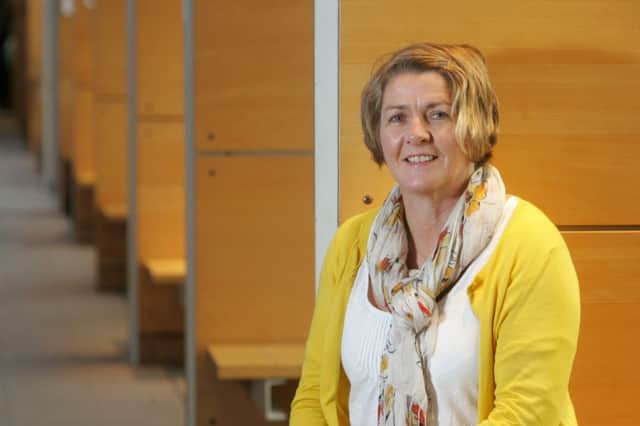Time we all WiSE up to gender inequality


The Women in Scotland’s Economy (WiSE) research centre at Glasgow Caledonian University (GCU) hosted a two-day conference to celebrate the life and work of feminist economist Professor Ailsa McKay, who died last March.
It brought together policy-makers, international scholars, politicians, economists, students, staff and family and friends who are building on Prof McKay’s outstanding contribution that, for the first time, put the role of women high on the economic and political agenda.
Advertisement
Hide AdAdvertisement
Hide AdShe established the WiSE research centre to promote gender equality and enhance the quality of life for women, their children and families.
Prof McKay and her colleagues went on to play a key role in advising and influencing government on issues such as universal childcare. While her expertise was regularly called upon by academics, politicians and the media, Prof McKay was just as determined to engage with those whose lives she sought to improve.
A significant milestone in her campaign for gender analysis of government budgets, spending plans and economic strategies, is the Equality Budget Statement, a distinctive feature of the Scottish budget process which resulted from the work of the Scottish Women’s Budget Group and Prof McKay’s membership of the Equality and Budget Advisory Group.
In childcare provision, Prof McKay significantly influenced Scottish Government thinking on the expansion of universal and affordable childcare. She argued for a transformation in childcare whereby its provision is more highly valued, workers better paid, and infrastructure regarded as a public investment for the common good.
From her early research and publications on social security she argued a citizen’s basic income is a key issue and she contributed on the debate on options for independence and further devolution. GCU has created a post-doctoral research fellowship within WiSE in her name that will focus in its first year on gender analysis of a citizen’s basic income.
These concerns and wider issues relating to women’s economic contribution and the need for alternative approaches to economic policy that take account of the household and women’s contribution will be the continuing focus of WiSE. Based within GCU’s Glasgow School for Business and Society, the research centre is at the forefront of researching and gathering evidence which is central to ending inequality between men and women.
Evidence of the impact and reach of WiSE can be seen from the engagement of its researchers in the wider debate on Modern Apprenticeships, and current discussions on refreshing the Scottish Government’s economic strategy, arguing for an emphasis on valuing care, making women’s contribution visible, and arguing for sustainable and inclusive growth.
Although WiSE research has a central focus on Scotland’s economy and economic policymaking, the team of researchers has extensive reach and engagement with feminist economic networks internationally, including the European Gender Budgeting Network and the international working group on gender, macroeconomics and international economics. Visiting scholars to WiSE include distinguished professors from the UK, Turkey, Spain, Australia and Canada.
Advertisement
Hide AdAdvertisement
Hide AdWiSE has established itself as an authoritative and credible advocate for gender equality and women’s economic contribution. Pioneering feminist economist Professor Marilyn Waring said at the commemorative conference that Prof McKay was “a woman who wanted to change the world and used all of her skills, advocacy, and networks to make that impact in Scotland”. Taking forward this legacy and the opportunities for change in a vibrant Scotland, with keen engagement and debate across civil society, political parties and government, is a challenge, but a welcome and positive one.
• Dr Jim Campbell is reader in economics; Morag Gillespie is a senior research fellow; Dr Angela O’Hagan is a research fellow and Emily Thomson is a senior lecturer, all at Glasgow Caledonian University www.gcu.ac.uk